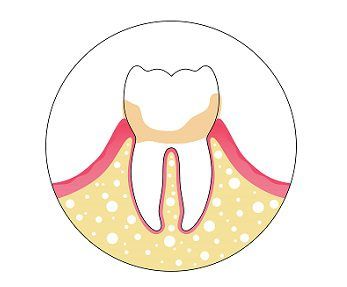How does plaque cause gum disease?
Dental plaque affects everyone. When bacteria in your mouth blend with sugary meals, a sticky film develops on the teeth. Brushing and flossing remove plaque from your mouth. However, if you do not remove plaque, it hardens into tartar and causes cavities, gingivitis (gum disease), and tooth loss. Therefore, knowing the causes of plaque buildup in your mouth is crucial to preventing gum disease.
What is dental plaque?
Dental plaque is a sticky form of bacteria that forms on your teeth. Furthermore, the plaque on your teeth makes acids. Thus, these acids can erode tooth enamel, resulting in cavities and gingivitis (gum disease).
Plaque left untreated can harden into difficult-to-remove tartar. Moreover, plaque can also form behind the gums on tooth roots, weakening the bones that support teeth. Plaque is removed with proper oral care, which includes frequent brushing and flossing.
What causes plaque?
Bacteria and other organisms enter your body when you eat, drink, or breathe. However, your oral ecology usually maintains a delicate balance, but issues can occur when specific types of bacteria become plentiful. Furthermore, bacteria feed on carbohydrates, sugars, sweet meals, and drinks, generating acids. Consequently, these acids can cause cavities, gingivitis, and tooth decay. Moreover, plaque can cause tooth decay under your gums, where you can't see it, eroding the support for your teeth.
What are the risks of dental plaque?

Plaque can develop into tartar if you neglect to brush and floss daily. Only your dentist can remove tartar. Plaque and tartar can result in:
- Cavities.
- Gingivitis
- Severe gum infection (periodontitis).
- Tooth deterioration and tooth loss
- Infection of the teeth (abscessed tooth)
Treatment to remove plaque
You can prevent plaque and tartar by maintaining good dental care, which includes brushing and flossing. Your dentist may also suggest:
- Dental sealants: Plaque is prevented from growing on the upper chewing surfaces of teeth.
- Professional dental cleaning: The dentist will scrape plaque and tartar off your teeth.
- Fluoride treatments: This treatment helps to prevent tooth decay by slowing the growth of plaque-causing bacteria.
- Antibacterial mouthwash or prescription toothpaste (chlorhexidine)
How can you prevent plaque buildup in your mouth?
Floss once a day: Use dental or a water flosser to remove food and grime between your teeth. According to research, flossing before cleaning your teeth removes more plaque.

Brush your teeth daily: Brush your teeth using fluoride toothpaste and a soft-bristled toothbrush for two minutes (manual or powered). Brush your teeth, preferably after each meal.
Select healthy foods: Reduce consumption of sugary, starchy foods and beverages. Choose healthy foods and snacks such as plain yogurt, cheese, fresh vegetables, or fruit.
Consult your dentist: Get your teeth checked at least twice a year.
Conclusion
Dental plaque is a prevailing issue with a simple solution: Brush and floss daily, and visit your dentist. You can use antiseptic mouthwashes to destroy germs that create plaque. However, leaving plaque coating on your teeth for too long will solidify and turn into tartar. As a result, you may develop gum disease and lose teeth. Moreover, many dental professionals advise getting professional teeth cleaned at least twice a year. Therefore, consult your dentist about ways to minimize plaque and safeguard your dental health.
Contact your Danville dentist, Dr. Hoss Abar, DDS, MSD at Danville Orthodontics to learn more about plaque.
Resource:
This media/content or any other on this website does not prescribe, recommend, or prevent any treatment or procedure. Therefore, we highly recommend that you get the advice of a qualified dentist or other medical practitioners regarding your specific dental condition
